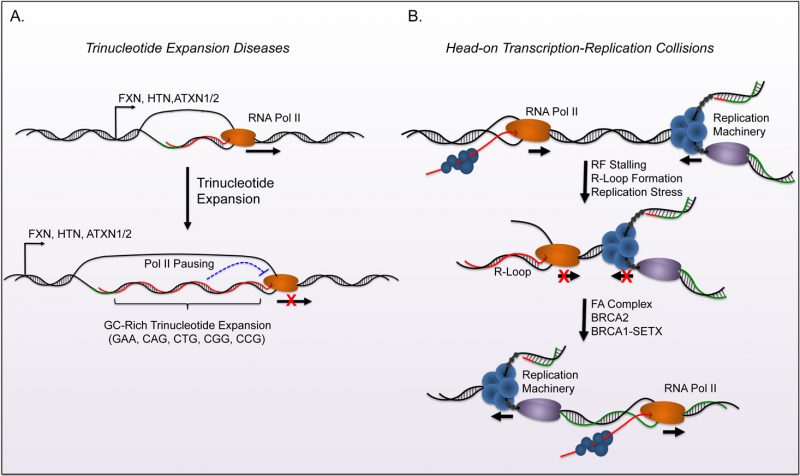Back to article: R-loops: formation, function, and relevance to cell stress
FIGURE 2: Biological consequences of R-loop formation. Formation of R-loops can result in defects in transcription and genomic instability. (A) Evidence indicates that R-loop formation contributes to trinucleotide expansion related diseases. The expansion of GC rich sequence in the gene body creates conditions that are favorable for R-loops and can subsequently cause reduced expression of specific genes (FXN, HTN, ATXN1/2). These diseases typically result in neurodegenerative disorders and ataxia. (B) Head-on collisions between the replication fork and transcription bubble create favorable conditions for R-loop formation. The FA complex, along with BRCA1, and other factors promote bypass and resolve R-loops during these collisions in order to complete replication and maintain genome stability. Mutation in FA complex subunits increase DNA damage associated with collisions and this damage is associated with cancer progression.

